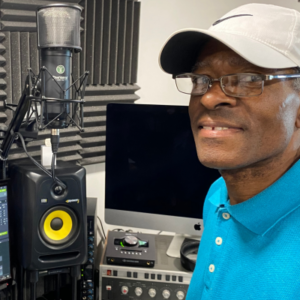The Temptations came to Motown in 1961, but the origins of the group go back to the 1940s! Eddie Kendricks and Paul Williams were children when they first began singing together in church in Birmingham, Alabama. In 1955 they decided to form a Doo-Wop group along with Kell Osborne and Wiley Waller (Jerome Averette is named in some sources), which they named the Cavaliers. In 1957, the group decided to move first to Cleveland, Ohio, (where Milton Jenkins became their manager) and then to Detroit, in search of an opportunity to break into the music business. As a first step, they renamed themselves the Primes. Jenkins later helped set up a similar girl group, which he named the Primettes. They became the Supremes!
Under Jenkins’ management, the boys soon acquired a reputation in the local area for their dress sense, their choreography and their smooth harmonies. They had style. Sadly, the Primes existence as a quartet was very short, as Waller left in 1958. Two years later, the group broke up when Kell Osborne moved to California and Kendricks and Williams went back to Alabama.
Around the same time, a young man from Texarkana, Texas, was also starting to make his mark on Detroit’s music scene. By 1960, Otis Williams was leading a vocal harmony group called the Distants, that attracted the interest of Berry Gordy. They too lost key members just as things began to look promising. The obvious solution was for the groups to merge their remaining personnel into a new entity, and that is what transpired, when Kendricks (in Detroit on a family visit) contacted Otis Williams to suggest that he and Paul Williams should join up with Otis Williams and two other members of the Distants, Melvin Franklin and Elbridge “Al” Bryant. They settled on a new name, the Elgins, and duly auditioned at Motown in 1961.

The Temptations (original line-up)
Photo: Motown Revue Concert Programme 1963 (Wikimedia Commons)
Berry Gordy was impressed and signed the boys to the new Motown subsidiary label Miracle, renaming them the Temptations. Two singles were issued during the remaining part of that year, first “Oh Mother Of Mine” / “Romance Without Finance” and then “Check Yourself” / “Your Wonderful Love”. The first A-side was co-written by Mickey Stevenson and Otis Williams. Production was the responsibility of Mickey Stevenson and Andre Williams, credited as Dre-Mic. The B-side was co-written by Kendrick and Stevenson and also produced by Dre-Mic. The second A-side was co-written by the three members of the Distants plus Berry Gordy, who also provided one of his songs for the B-side and produced the two tracks.

The four songs recorded on the short-lived Miracle label are a mix of ballads and up-tempo dance songs, with Paul Williams taking lead vocal and Eddie Kendricks sometimes adding a falsetto line. The arrangements are busy, featuring guitar and piano. For the second single Eddie Holland sang the harmony vocal line.
In 1962, Berry Gordy decided to change the name of his subsidiary label from Miracle to Gordy, possibly to avoid confusion with the Motown group the Miracles. The Temptations recorded two Gordy singles that year, “Dream Come True” / “Isn’t She Pretty” and “Paradise” / “Slow Down Heart”. “Dream Come True”, written and produced by Berry Gordy, has Eddie Kendricks singing lead vocal. It is a lilting ballad, with a piano-led arrangement and some rich harmonies from the other Temptations. It gave the group their first chart entry, reaching number twenty-two on the Billboard R&B Singles Chart. “Paradise” features Eddie Kendricks singing the lead falsetto vocal and Melvin Franklin’s bass underpinning the harmony. It also made a chart entry, at number one hundred and twenty-two on the Billboard Hot 100 Singles Chart. This small beginning convinced Berry Gordy that the group could make a major breakthrough.

But, for the moment, the Temptations were still feeling their way. They released only two singles in 1963. The first was “I Want A Love I Can See”, which was written and produced by Smokey Robinson. Up until this recording, Berry Gordy had been working with the group, but he was obviously concerned that they had not yet registered a chart entry, so switched them to Robinson. When the Robinson song also failed to enter the charts, Gordy switched them to Norman Whitfield, a young and up-and-coming songwriter/producer who had persuaded Gordy to hire him aged nineteen. Norman Whitfield and Janie Bradford came up with a song entitled “May I Have This Dance” which Whitfield also produced, backed by “Farewell My Love” written and produced by Gordy. The single failed to make an impression. Fortunately, things were soon to improve.
Like the Supremes, the Temptations started 1964 not assured of success. Only one of the seven singles they had released had entered the charts. However, the Temptations had organised a change of personnel at the end of 1963, with David Ruffin replacing Elbridge Bryant, and they were hoping for a change of luck.
January 1964 saw the release of their next single entitled “The Way You Do The Things You Do”, co-written by Smokey Robinson and Bobby Rogers from the Miracles, whilst the two groups were on tour as part of the Motortown Revue. The three-note phrase on the piano drives the song along, in what was fast becoming typical Motown style. Eddie Kendricks sings the falsetto lead on the recording, and the changes finally brought success. The single peaked at number eleven on the Billboard Hot 100 Singles Chart but made it to number one on the Cash Box R&B Singles Chart. The song has been covered in later years by several acts, including Rita Coolidge (1978) and UB40 (1990), both of whom enjoyed chart success.

For the next release in April, Smokey Robinson wrote and produced the A-side “I’ll Be In Trouble”, while Norman Whitfield and Eddie Holland co-wrote the B-side “The Girl’s Alright With Me”, with Whitfield producing. On the strength of the previous single’s chart success, Kendricks was again given the lead vocal duties, with bass Melvin Franklin providing the bridge. Despite being very similar to the January single, “I’ll Be In Trouble” reached number thirty-three on the Billboard Hot 100 Singles chart and number twenty-two on the Cash Box R&B Singles chart.
Berry Gordy was looking for better than that, however, and so decided to give Norman Whitfield a turn in charge for the Temptations’ third single of the year, “Girl, Why You Wanna Make Me Blue” / “Baby Baby I Need You”, which came out in August. The pattern of the previous recording was reversed. Whitfield and Eddie Holland co-wrote the A-side, with Whitfield producing, whilst the B-side was written and produced by Robinson. The switch gave the single slightly better success, number twenty-six on the Billboard Hot 100 Singles chart and number eleven on the Billboard R&B Singles chart, but Berry Gordy thought that the Temptations should be replicating the Supremes’ success level. The pressure was definitely on, as he put Robinson back in the driving seat for the boys’ single number four of 1964. He needed to come up with something special!

In December, “My Girl” burst into the charts. Robinson had earlier in the year come up with “My Guy” for Mary Wells, which had been a huge hit. Now he cleverly used the same idea again, with a neat gender switch, co-writing and producing the song with Miracles’ member Ronnie White. He also asked David Ruffin to sing the lead vocal for the first time, having been impressed with his live performances of “Under the Boardwalk” during the Motortown Revue tour. The Temptations came up with some great ideas for the backing vocals, James Jamerson created the opening bass line that made the song so memorable, and Robert White added a wonderful lead guitar riff. Just four of the Funk Brothers played on the track: Robert White (guitar), Earl Van Dyke (piano), James Jamerson (bass) and Benny Benjamin (drums), but that was all it needed. For the strings, Robinson turned to members of The Detroit Symphony Orchestra. When the final mix was played, everyone agreed that it was going to be a big hit. The single was released a few days before Christmas and by January 16th it was top of the Billboard Hot 100 Singles Chart (the first for Gordy Records) and also number one on the Billboard R&B Singles Chart, which had just been reinstated.
The song has received gold certification in Italy and Denmark and platinum certification in the USA and the UK. It was inducted into the Grammy Hall of Fame in 1998 and selected for preservation in the National Recording Registry by the Library of Congress in 2017.
It was re-issued in 1992 to coincide with the release of the film My Girl, and went to number two on the UK Official Pop Singles Chart, having only made it to number forty-three on its first release. Many other artists also paid tribute to the song by covering it. Otis Redding recorded a raw Soul version in 1965, the Rolling Stones included an excellent version on their 1967 “Flowers” compilation and Al Green’s version can be found on his album “Green Is Blues” from 1969. There are over one hundred and fifty versions listed. Now that is a good song! Berry Gordy was happy. He called Smokey Robinson into his office and gave him a bonus cheque for one thousand dollars even before “My Girl” reached number one. He just knew it would.
Earlier in the year, Motown had released the group’s first album “Meet The Temptations”, which is a collection of the best of the group’s songs up to that point, chosen from their singles. The Temptations had finally made the breakthrough!

















